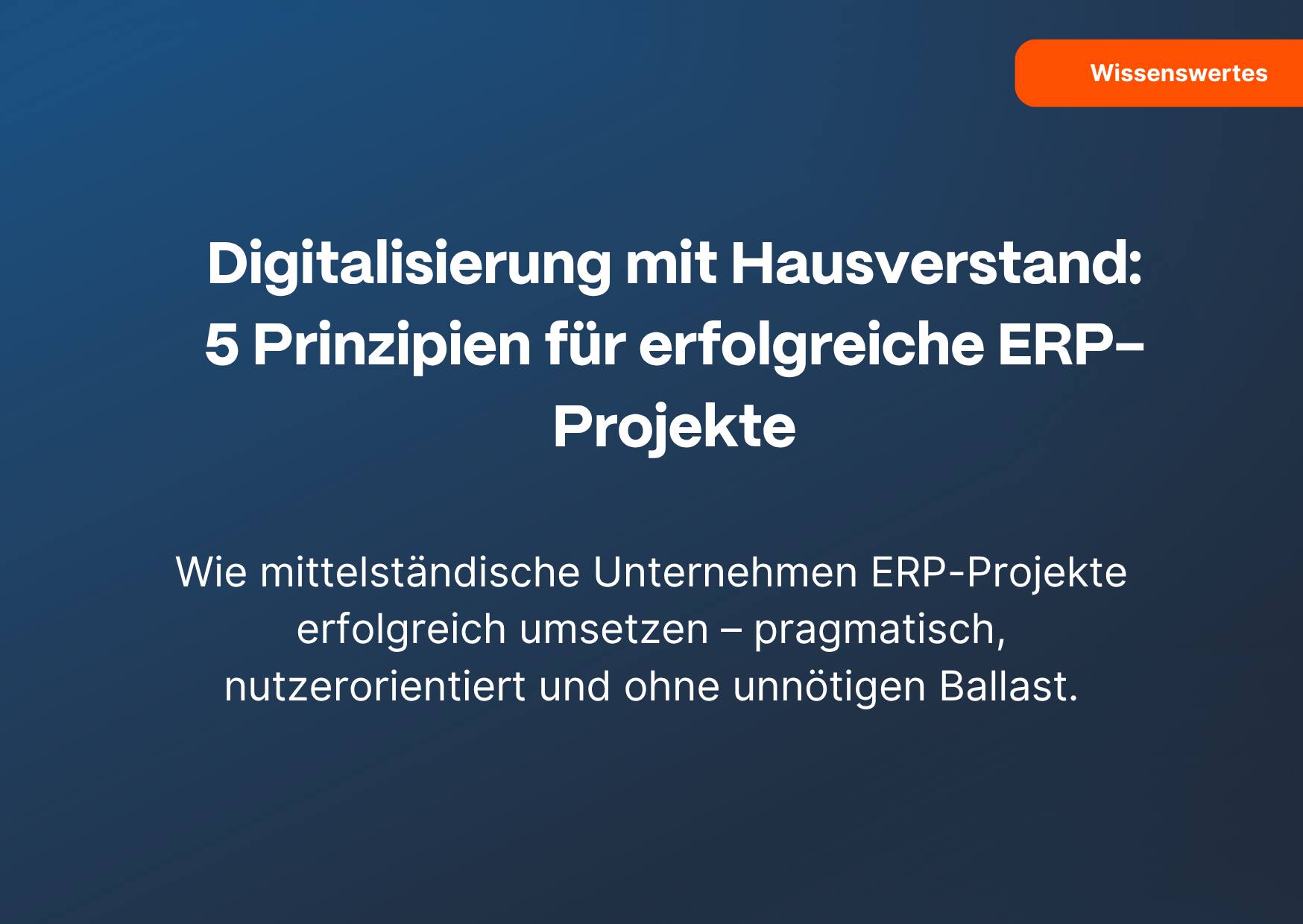
ERP projects are often seen as complex, expensive, and exhausting. But do they have to be? Not necessarily – especially if you approach digitalisation with common sense. Here are five simple but powerful principles that make the difference.
ERP projects often begin with questions like: “Can we rename this field?” or “How flexible is the route planning?” – before it’s even clear what the system is supposed to achieve.
Common sense means:
👉 Start by asking: What are we trying to change or improve with this ERP system?
👉 Define a shared vision – not just at the management level, but also with operational teams.
👉 Only then talk about modules, features, and interfaces.
An ERP project without clear goals is like a GPS without a destination – it offers options, but no direction.
ERP systems are tools for people. If people aren’t involved, the system won’t be used. Too often, systems are built for users, but not with them.
Common sense means:
👉 Involve key users early – not just at go-live.
👉 Include operational departments in decision-making.
👉 Prioritise usability and day-to-day value over flashy features.
“All at once” sounds brave – but it rarely works. Especially in mid-sized companies, digitalisation succeeds best through manageable, prioritised steps, where learnings from one phase directly shape the next.
Common sense means:
👉 Start with pilot areas to gain practical experience.
👉 Plan staggered rollouts with feedback loops.
👉 Successful digitalisation = continuous improvement, not a one-off project.
Yes, standard processes make things easier. But companies are different – and that’s a good thing. Especially in industries like food, construction, or maintenance, tailored solutions are often necessary.
Common sense means:
👉 Use standard processes where they add value.
👉 Allow customisation where it creates real business benefits.
👉 Flexibility should be part of the ERP concept – not an exception.
ERP projects rarely fail due to technology – but often due to misunderstandings, unrealistic expectations, or poor communication. Clear communication between leadership, project teams, departments, and IT is essential.
Common sense means:
👉 No team should feel left behind or overruled.
👉 Communicate project status transparently – even setbacks.
👉 Choose implementation partners who act as equals and think with you.
Especially in the mid-market, successful ERP projects don’t need to be huge – they need to be smart, pragmatic, and people-oriented. Companies that approach digitalisation with common sense not only save time and money, but also increase acceptance and long-term value.
💬 Want to talk about your ERP project or see how we approach things?
We’d love to hear from you – open, honest, and with common sense.